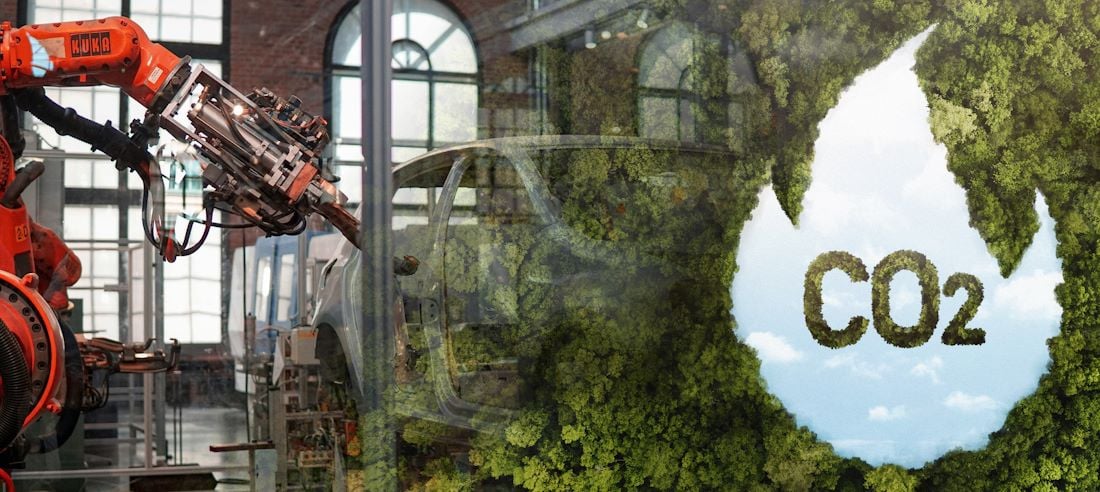Transforming the energy supply from fossil to renewable sources is a goal that makes sense, but even so, it is not enough. As I wrote last week, the entire energy system needs a transformation, embracing a maximum of energy efficiency. A suitable approach would not be an isolated one, but rather one that integrates both the supply and the demand sides. This is one of the conclusions drawn from the last “synthesis report” published recently by the Low Carbon Society Research Network. The report summarized their fourth annual meeting, held in September in Oxford. Despite the fact that the three prior meetings were held in Italy, Germany and France, the network includes institutions and representatives from all over the world. We need a global energy transition, no doubt about that, but in a system where the most influential actors benefit from the current, that is fossil-based, state of affairs, the transition’s financing is a big challenge. On page nine of the Low Carbon Society-report (PDF) it says “0.5% of the total sum of private capital assets would be enough to finance the up-front costs of a global energy systems transition.” A combination of top-down and bottom-up mechanisms has the power to put the transition into effect, it continues, referring to the Tobin Tax and a phase-out of fossil subsidies for the former, and “cooperatives, local banks and municipally owned utilities” for the latter.
As seemingly trillions of publications show, science is keen on providing good reasons to enter the low-carbon era. Better sooner than later is the the early 21st century’s paradigm. But how can you take all these rather theoretical suggestions out of the scientific ivory tower and translate them into the living rooms, driver seats and factory floors of the real world? After all, that’s where the carbon molecules are set free, isn’t it?
It is exactly this question that five researchers from the British University of Leeds and the University of York asked themselves. Andy Gouldson, Niall Kerr, Corrado Topi, Ellie Dawkins and Johan Kuylenstierna evaluated thousands of energy efficiency measures and small-scale renewable energy generation options not only for their carbon saving potential, but also for their cost-effectiveness. The remarkable outcome of their “City-Scale Mini-Stern Review” (PDF), published by Low Carbon Futures in January 2012, is a top-ten list for the best technological measures in the commercial, domestic, transport and industrial sectors. I found their presentation in the newsletter from the Stockholm Environment Institute a while ago. Now it is not surprising that the two rankings for maximum cost and maximum carbon effectiveness diverge. However, even for the latter, the authors only chose cost effective or cost neutral measures, all of which pay off in less than seven years. Once more, it becomes apparent that saving the climate and environment is possible at no extra charge.
3.8% Less Carbon through Efficient Home Appliances
Let’s begin with the house or flat you live in. The single top measure that reduces carbon emissions and pays off the most quickly in England is a mini wind turbine of up to 5 kW, thanks to the feed-in tariff that generously refunds the electricity you generate when it is fed into the grid. Measure number two is a biomass furnace, and again, it pays off because of a public incentive, this time the RHI program, UK’s renewable heat incentive. At places 3-9 come efficient household appliances that fulfill ambitious efficiency ratings and the idea of using washing machines at low temperatures or with cold water. Rank ten is held by biomass powered district heating.
On the most cost-effective side, the best measure is to reduce your heating temperature by at least 1° C. Improved wall insulation, measure number two, is marked as cost-neutral, which I personally doubt, especially in light of rising energy prices. At number 3 comes the biomass furnace (with the RHI) with which we’re already familiar from the cost-effectivness ranking. The lower ranks also include a few of the most cost-effective measures like efficient electronic products. Efficient lighting is of course a good measure to reduce carbon emissions. Heat pumps with RHI, be they ground or air based, rank among the top 10 carbon-effective measures. They are, however, only cost-neutral.
If all these measures were to be taken, the Leeds city region referred to the report could prevent 3.8% of its carbon emissions every year. Taking into account the total investment sum of £1.1 billion and the annual cost savings of £400 million, it would take less than three years to pay back the investment.
0.9% Lower Emissions through Hybrids, Bus Priority, Cycling Lanes
Whether you go to work, to school, to university, or shopping, the choice of a means of transport is vital to your personal carbon budget. This choice mainly depends on the provided infrastructure – if there’s only one bus every hour, you could hardly be bothered to take it. When the streets are crowded and the intersections dangerous, the willingness to walk or cycle drastically decreases. This is why cities have to make the right choices and invest in attractive public transport systems, cycling infrastructure and pleasant walkways. The modal split is essential, too. Is there a safe parking space in the outskirts for me to put my car while I use public transport to the center? Can I rent a bike at the subway station? Is parking for car sharing conveniently located at the exit of the railway station? All these alternatives are a complex matter that is hard to assess. Especially when the habits of the older citizenry are so often based on decades of taking the car, no matter how short the distance.
How handy someone has already calculated how much can be saved through the different alternatives for decreasing the carbon-intensity of the transport sector! Here come the ten most cost-effective measures to reduce transport-related carbon emissions: park and ride schemes, express bus network, bus priority and quality enhancements, smarter choices, cycling, mild hybrid vehicles, demand management and plug-in hybrid vehicles.
The list of carbon-effective measures in transport consists of five cost-effective, two cost neutral and three cost intensive measures. It has to be noted, however, that it depends on the scope and how you value the costs. You can either say “Why should my municipality pay for saving the climate”, or you can be aware that these costs will appear anyway, be it now (through internalization) or later (to compensate climate change effects). Either we, or future taxpayers have to bear them – with the only difference that the earlier you start internalizing, the lower the overall monetary cost.
So next comes the list of the top 10 carbon effective measures in transport: biofuels, micro hybrid vehicles, full hybrid vehicles, plug-in hybrid vehicles, electric vehicles, demand management, mild hybrid vehicles, smarter choices, bus priority and quality enhancement, and rail electrification. Three of these measures demand higher investment. They are: micro hybrid vehicles, electric vehicles and rail electrification. Altogether, these measures would save the climate 0.9% of Leeds’s emissions, they require £850 million of upfront investment and pay back £130 million each year – that amounts to a 6.3-year payback period.
3.9% CO2 Reduction in Offices with Fax Switch-Off, Light Timers, Energy Management
The best measure for the commercial sector, according to the presentation, is to switch off the fax machines after work. Ranks two to six include energy management for photocopiers, monitors, computers, printers and vending machines, followed by timers for the lights. A basic timer already saves a lot, but even more efficient is a sunrise-sunset timer. These measures all save carbon emissions and pay off in a second.
Even more carbon savings can be expected from ten measures that require higher up-front investments and longer payback periods. England has a cold climate, so heating consumes much more energy than air conditioning, which plays only a marginal role. It is no surprise that most of the candidates here refer to room heating. The measure of measures for the commercial sector is the air source heat pump with RHI, followed by the most efficient furnaces available and programmable thermostats. Rank 4 is held by biomass furnaces with RHI, just before a reduction of the room temperature. A cost neutral alternative comes on rank six: ground source heat pumps with RHI. Biomass district heating with RHI, at rank seven, is also cost-effective, but the following measure, high efficiency, double glazed windows is only cost-neutral. An optimization of when heating starts and a basic timer for the lights round up this list.
All these measures add up to £1.9 billion of possible investments, generating £335 million annual cost savings. This means that for achieving 3.9% carbon emission reductions in the commercial sector, the Leeds city region would have to wait 5.5 years until the measures paid off.
4.3% Carbon Savings through Eco-Design, Renewable Heat, Efficient HVAC
The keywords for cost-effective measures in the industrial sector are burners, lighting, design, compressed air, heat recovery, building energy management, refrigeration and air-conditioning, fabrication and machining, operation and maintenance, and drying and separation. For details on measures with the highest energy saving potential in industry, check out the seemingly infinite array of articles already published here on knowtheflow (see links at bottom of page). The most carbon-effective measures for industry, according to the presentation, are renewable heat, process improvement, drying and separation, high temperature heating, motors and drives, controls, heat recovery, low temperature heating, and operation and maintenance. By investing £1.07 billion in these measures, the Leeds city region would save £320 million a year. After only 3.3 years, the measures would be paid off and 4.3% of the previous emissions wouldn’t affect the climate and the air quality anymore.
Now, I know that incentives to subsidize renewable energy don’t fall from the sky. However, even if they’re not available in your country, I’m absolutely sure that many of these measure will save you good dollars and our climate tons of emissions. Since I’ve not been the first to put these measure out for consideration, let our readers know what experiences you have already had with any of the 67 measures!
Further Reading
- Sharing Knowledge to Meet a Common Challenge; Synthesis Report of LCS-RNet Fourth Annual Meeting 2012. LCS-RNet (editors), IGES, Japan; lcs-rnet.org
- Andy Gouldson, Niall Kerr, Corrado Topi, Ellie Dawkins, Johan Kuylenstierna (2012): The Economics of Low Carbon Cities: A Mini-Stern Review for the Leeds City Region. Centre for Low Carbon Futures; www.lowcarbonfutures.org
- knowtheflow: 31 Innovations for Maximum Resource Efficiency in Manufacturing
- knowtheflow: Why and How the Manufacturing Industry Should Go 100% Renewable Now
- knowtheflow: 6 Options to Maintain Current Lifestyles with Far Less Raw Materials: “With Both Eyes Open”
- knowtheflow: 7 Measures for Efficient Climate Control on the Factory Floor
Article image by KingLomo (CC BY) shows a street scene in London.





